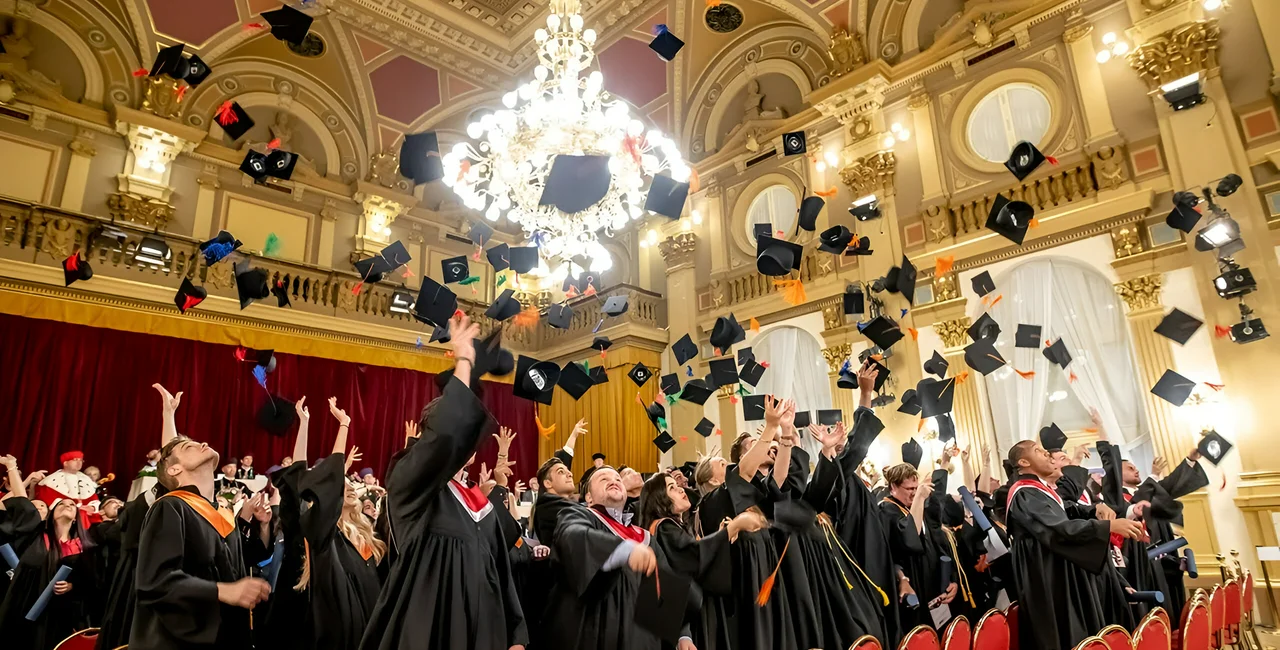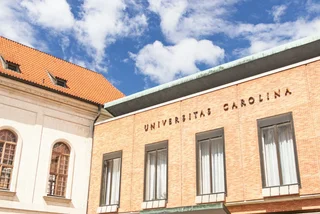Unpredictability and uncertainty are the biggest problems posed by recent decisions of U.S. President Donald Trump and his administration to tighten conditions for studying in the States, according to Jiří Schwarz, rector of the private Anglo-American University in Prague.
“The biggest problem has become the unpredictability, uncertainty, and risk that such decisions create. When a student doesn’t know whether he or she will be able to complete the studies, stay for an internship or extend the visa, he or she starts to consider other options,” Schwarz said.
The Trump administration ordered U.S. embassies and consular offices not to schedule new interviews with student visa applicants in late May. Interviews can be resumed, but officials now carefully screen applicants, including their social media profiles, for posts hostile to the United States. The administration is also seeking to prevent foreign students from being admitted to Harvard University.
Schwarz said there was also a risk of an exodus of academics from the U.S., especially if universities are tied down by more restrictions and red tape. “Academics today are very mobile, and if somewhere else offers them a more open and stable environment, there is no reason for them to stay where their work is complicated by restrictions and external factors,” he said.

Interest in study at dual-accreditation schools
According to Studyportals data, global student interest in U.S. degree programs dropped by 50 percent between January and April 2025, with many students now favoring options in Europe instead.
Schwarz anticipates this trend to accelerate, especially among students from the regions most affected by the visa measures, particularly from the Middle East, Asia, or Africa, who are starting to plan their futures elsewhere. He expects an increase in interest in studying at institutions like Anglo-American University in Prague, which has both Czech and U.S. accreditation.
Account Manager

Translations Project Manager | PART TIME

“Getting a study visa is not quite easy, the cost of living is much higher than at home or in Europe, and job opportunities after school are becoming less certain. So for students who want to study in English and are pursuing an internationally valid degree, it currently makes sense to stay in Europe, especially if they can continue their studies in the U.S. later, for example through transfer agreements between schools,” Schwarz said.
One option for students interested in American-style learning is foreign campuses and international institutions offering those standards in Europe or Asia. Anglo-American University is one such institution, accredited both by Czech authorities and U.S. educational bodies, allowing it to provide degrees with recognized on both continents.
How much does a American-style education cost?
American-style universities in Europe provide U.S.-accredited Bachelor’s and Master’s programs, often with dual diplomas.
According to estimates from Study.eu, tuition ranges from €4,000 to €18,000 for Bachelor’s and €5,000 to €20,000 for Master’s degrees, with application fees around €50–€100. English is the primary language, and scholarships are available, including full tuition at Anglo-American University and sports scholarships at the University of New York in Prague (UNYP).
Studying in European cities like Prague also offers another advantage: access to internships and job opportunities within multinational companies and organizations.
However, these schools can be costlier than local public universities, have smaller campuses, and their degrees may not always carry the same weight with European employers. The American-style teaching approach may also not suit every student, and living costs in major cities add to expenses.
For many, though, Europe offers a stable, high-quality, internationally recognized education without the visa uncertainties currently affecting U.S. campuses.













 Reading time: 3 minutes
Reading time: 3 minutes 



 Spanish
Spanish
 German
German
 Bulgarian
Bulgarian

























